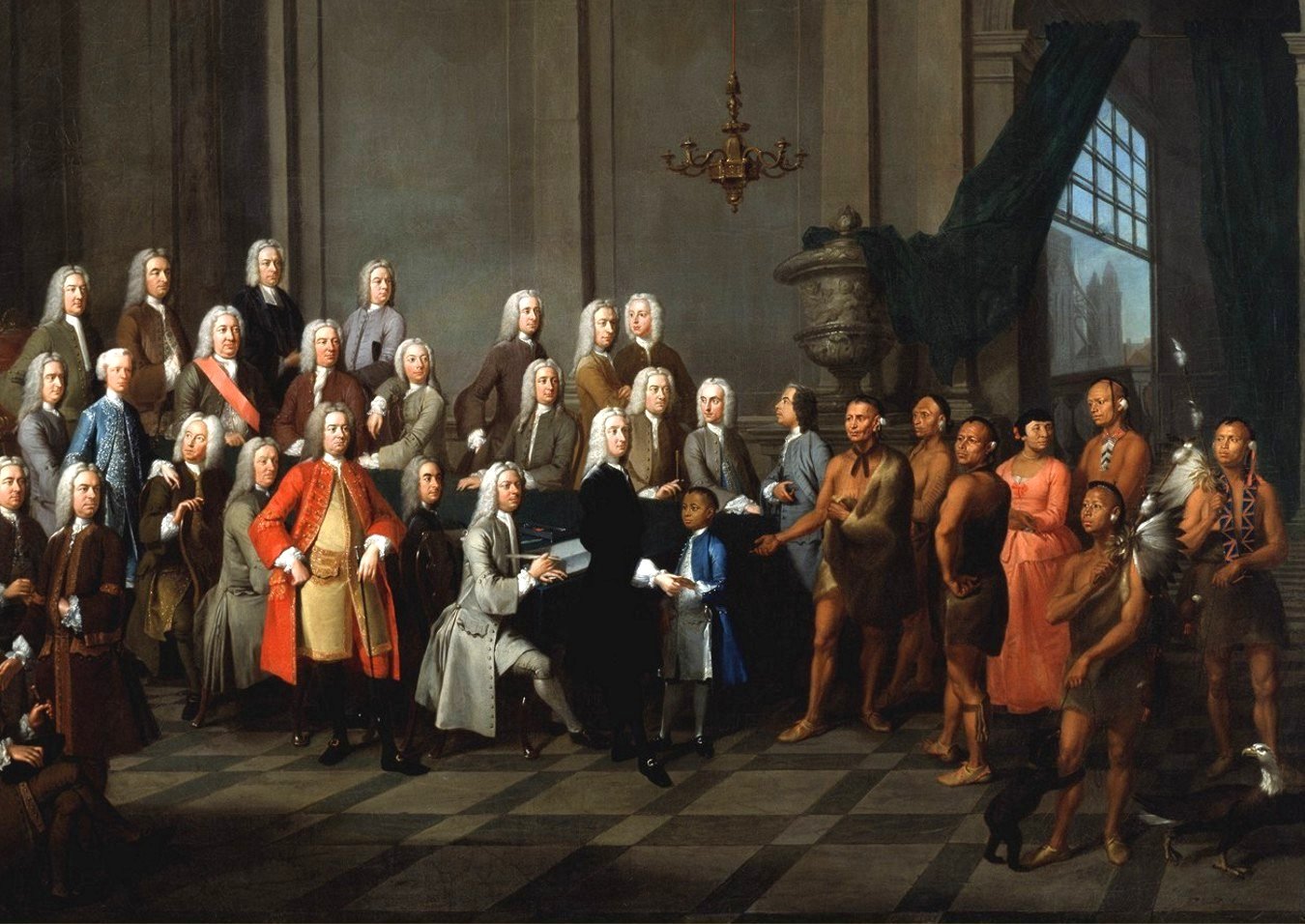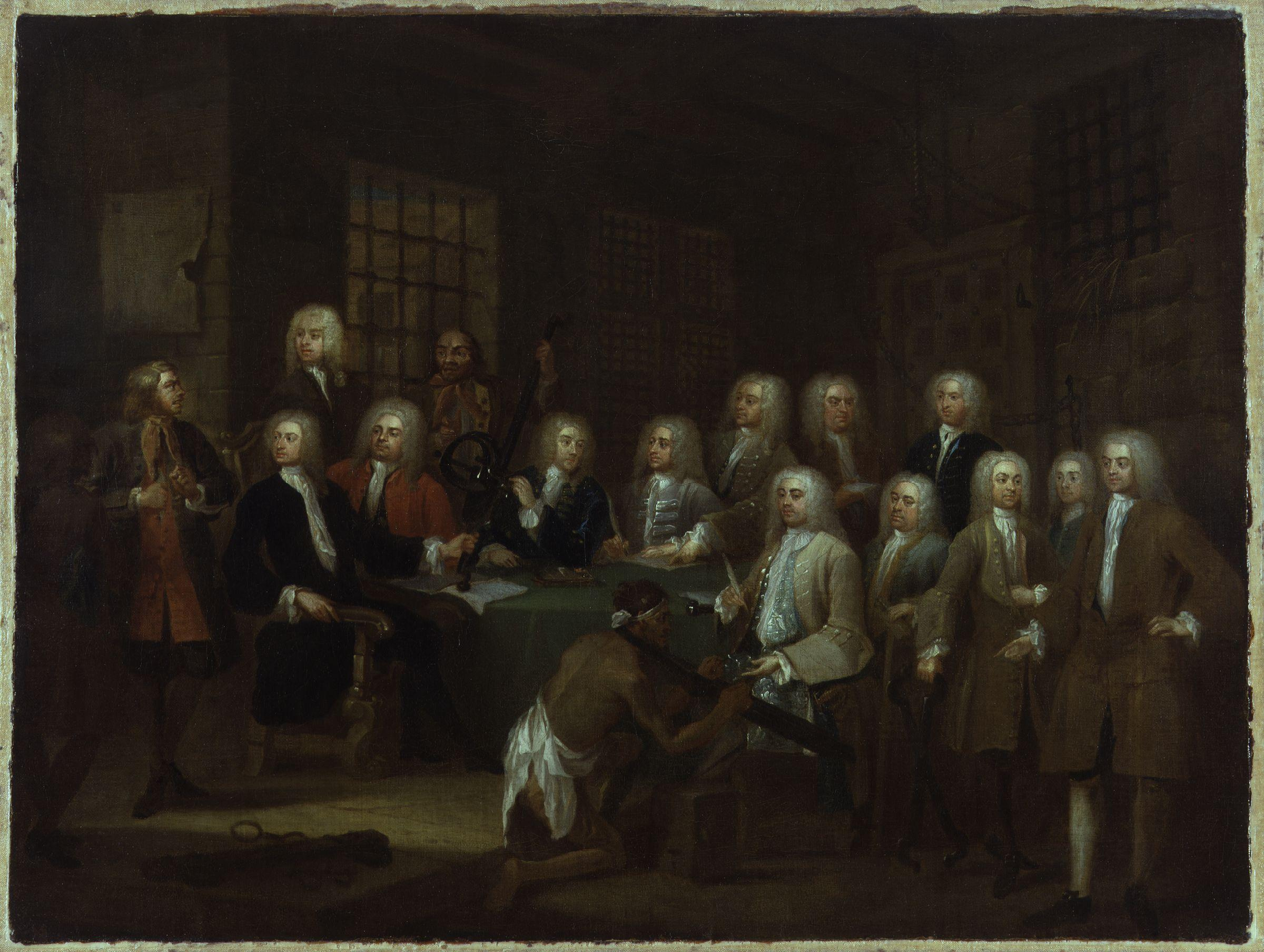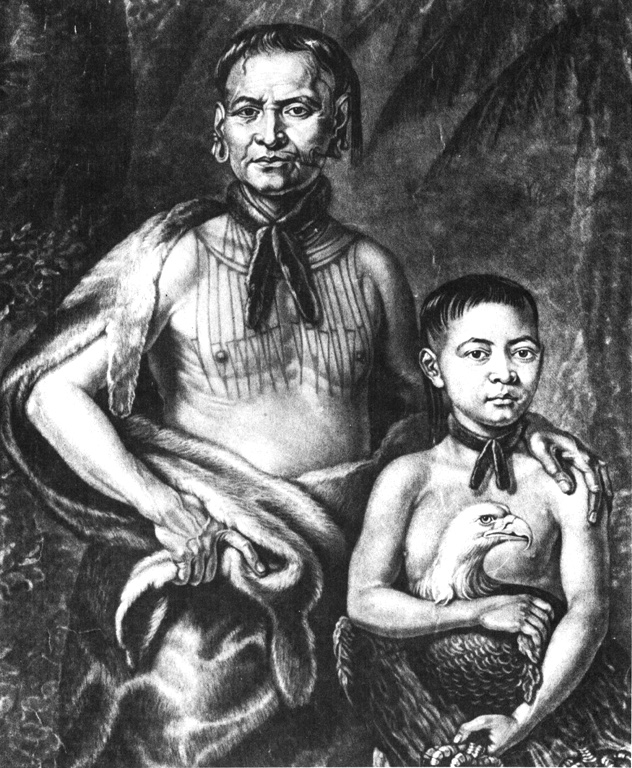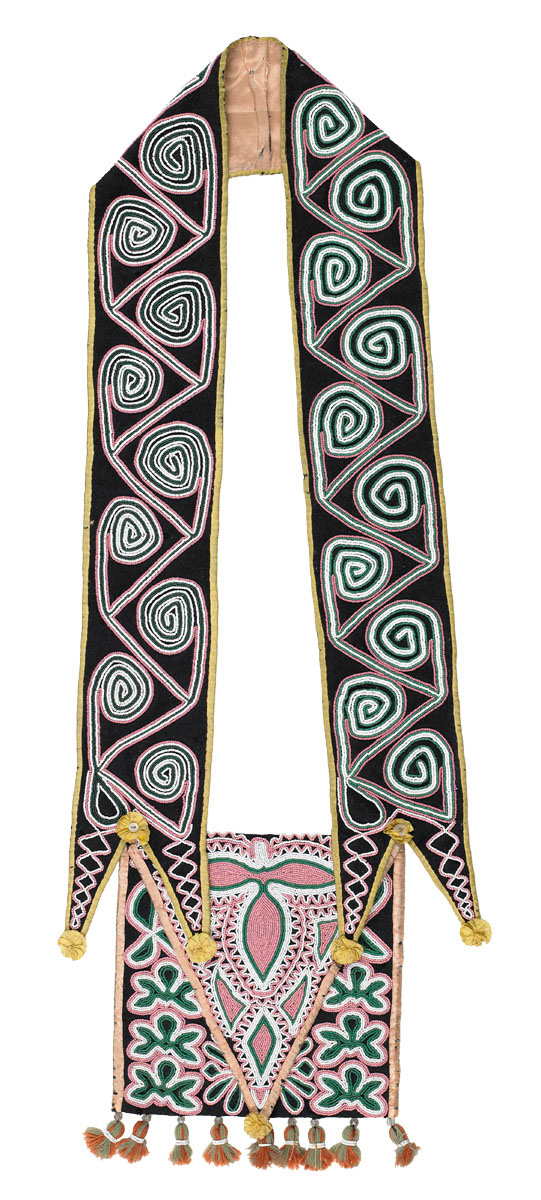|
Yamacraw
The Yamacraw were a Native American band that emerged in the early 18th century, occupying parts of what became Georgia, specifically along the bluffs near the mouth of the Savannah River where it enters the Atlantic Ocean. They were made up of Lower Creek and Yamasee, and remained independent for about 20 years before integrating again with the main part of the Lower Creek people. This area was later developed as the city of Savannah. History The Yamacraw tribe was formed in the late 1720s by leader Tomochichi from some bands of Yamasee and Lower Creek people who had disagreed with the severing of friendship with the British during the Yamasee War of 1715. By 1728 the Yamacraw had settled along the Savannah River near its mouth. This was later developed as the present-day city of Savannah. In 1733 James Oglethorpe, interested in founding a colony at the site because of its strategic location on the water, negotiated with Tomochichi and the Yamacraw agreed to move their village ... [...More Info...] [...Related Items...] OR: [Wikipedia] [Google] [Baidu] |
James Oglethorpe
James Edward Oglethorpe (22 December 1696 – 30 June 1785) was a British soldier, Member of Parliament, and philanthropist, as well as the founder of the colony of Georgia in what was then British America. As a social reformer, he hoped to resettle Britain's "worthy poor" in the New World, initially focusing on those in debtors' prisons. Born to a prominent British family, Oglethorpe left college in England and a British Army commission to travel to France, where he attended a military academy before fighting under Prince Eugene of Savoy in the Austro-Turkish War. He returned to England in 1718, and was elected to the House of Commons in 1722. His early years were relatively undistinguished until 1729, when Oglethorpe was made chair of the Gaols Committee that investigated British debtors' prisons. After the report was published, to widespread attention, Oglethorpe and others began publicizing the idea of a new colony, to serve as a buffer between the Carolinas and Span ... [...More Info...] [...Related Items...] OR: [Wikipedia] [Google] [Baidu] |
Tomochichi
Tomochichi (to-mo-chi-chi') (c. 1644 – October 5, 1741) was the head chief of a Yamacraw town on the site of present-day Savannah, Georgia, in the 18th century. He gave his land to James Oglethorpe to build the city of Savannah. He remains a prominent historical figure of early Georgia history. As the principal mediator between the native population and the new British settlers during the first years of settlement, he contributed much to the establishment of peaceful relations between the two groups and to the ultimate success of Georgia. Life Although much of his early life is unknown, Tomochichi was exiled from the Creek nation for unclear reasons and, along with several followers, he first settled in what is now Savannah, Georgia. Presumably, he was Creek and participated in their early activities with settlers in the colony of Carolina. In about 1730 Tomochichi created his own tribe of Yamacraw from an assortment of Creek and Yamasee Indians after the two nations disag ... [...More Info...] [...Related Items...] OR: [Wikipedia] [Google] [Baidu] |
Creek People
The Muscogee, also known as the Mvskoke, Muscogee Creek, and the Muscogee Creek Confederacy ( in the Muscogee language), are a group of related indigenous (Native American) peoples of the Southeastern WoodlandsTranscribed documents Sequoyah Research Center and the American Native Press Archives in the . Their original homelands are in what now comprises southern , much of , western |
Native Americans In The United States
Native Americans, also known as American Indians, First Americans, Indigenous Americans, and other terms, are the Indigenous peoples of the mainland United States ( Indigenous peoples of Hawaii, Alaska and territories of the United States are generally known by other terms). There are 574 federally recognized tribes living within the US, about half of which are associated with Indian reservations. As defined by the United States Census, "Native Americans" are Indigenous tribes that are originally from the contiguous United States, along with Alaska Natives. Indigenous peoples of the United States who are not listed as American Indian or Alaska Native include Native Hawaiians, Samoan Americans, and the Chamorro people. The US Census groups these peoples as " Native Hawaiian and other Pacific Islanders". European colonization of the Americas, which began in 1492, resulted in a precipitous decline in Native American population because of new diseases, wars, ethni ... [...More Info...] [...Related Items...] OR: [Wikipedia] [Google] [Baidu] |
Savannah, Georgia
Savannah ( ) is the oldest city in the U.S. state of Georgia and is the county seat of Chatham County. Established in 1733 on the Savannah River, the city of Savannah became the British colonial capital of the Province of Georgia and later the first state capital of Georgia. A strategic port city in the American Revolution and during the American Civil War, Savannah is today an industrial center and an important Atlantic seaport. It is Georgia's fifth-largest city, with a 2020 U.S. Census population of 147,780. The Savannah metropolitan area, Georgia's third-largest, had a 2020 population of 404,798. Each year, Savannah attracts millions of visitors to its cobblestone streets, parks, and notable historic buildings. These buildings include the birthplace of Juliette Gordon Low (founder of the Girl Scouts of the USA), the Georgia Historical Society (the oldest continually operating historical society in the South), the Telfair Academy of Arts and Sciences (one of the South's ... [...More Info...] [...Related Items...] OR: [Wikipedia] [Google] [Baidu] |
Savannah River
The Savannah River is a major river in the southeastern United States, forming most of the border between the states of South Carolina and Georgia. Two tributaries of the Savannah, the Tugaloo River and the Chattooga River, form the northernmost part of the border. The Savannah River drainage basin extends into the southeastern side of the Appalachian Mountains just inside North Carolina, bounded by the Eastern Continental Divide. The river is around long.U.S. Geological Survey. National Hydrography Dataset high-resolution flowline dataThe National Map, accessed April 26, 2011 The Savannah was formed by the confluence of the Tugaloo River and the Seneca River. Today this confluence is submerged beneath Lake Hartwell. The Tallulah Gorge is located on the Tallulah River, a tributary of the Tugaloo River that forms the northwest branch of the Savannah River. Two major cities are located along the Savannah River: Savannah and Augusta, Georgia. They were nuclei of ea ... [...More Info...] [...Related Items...] OR: [Wikipedia] [Google] [Baidu] |
Georgia (U
Georgia most commonly refers to: * Georgia (country), a country in the Caucasus region of Eurasia * Georgia (U.S. state), a state in the Southeast United States Georgia may also refer to: Places Historical states and entities * Related to the country in the Caucasus ** Kingdom of Georgia, a medieval kingdom ** Georgia within the Russian Empire ** Democratic Republic of Georgia, established following the Russian Revolution ** Georgian Soviet Socialist Republic, a constituent of the Soviet Union * Related to the US state ** Province of Georgia, one of the thirteen American colonies established by Great Britain in what became the United States ** Georgia in the American Civil War, the State of Georgia within the Confederate States of America. Other places * 359 Georgia, an asteroid * New Georgia, Solomon Islands * South Georgia and the South Sandwich Islands Canada * Georgia Street, in Vancouver, British Columbia, Canada * Strait of Georgia, British Columbia, Canada ... [...More Info...] [...Related Items...] OR: [Wikipedia] [Google] [Baidu] |
Yamasee
The Yamasees (also spelled Yamassees or Yemassees) were a multiethnic confederation of Native Americans who lived in the coastal region of present-day northern coastal Georgia near the Savannah River and later in northeastern Florida. The Yamasees engaged in revolts and wars with other native groups and Europeans living in North America, specifically from Florida to North Carolina. The Yamasees, along with the Guale, are considered from linguistic evidence by many scholars to have been a Muskogean language people. For instance, the Yamasee term "Mico", meaning chief, is also common in Muskogee. After the Yamasees migrated to the Carolinas, they began participating in the Indian slave trade in the American Southeast. They raided other tribes to take captives for sale to European colonists. Captives from other Native American tribes were sold into slavery, with some being transported to West Indian plantations. Their enemies fought back, and slave trading was a large cause o ... [...More Info...] [...Related Items...] OR: [Wikipedia] [Google] [Baidu] |
Maskoki
The Muscogee language (Muskogee, ''Mvskoke'' in Muscogee), also known as Creek, is a Muskogean language spoken by Muscogee (Creek) and Seminole people, primarily in the US states of Oklahoma and Florida. Along with Mikasuki, when it is spoken by the Seminole, it is known as Seminole. Historically, the language was spoken by various constituent groups of the Muscogee or ''Maskoki'' in what are now Alabama and Georgia. It is related to but not mutually intelligible with the other primary language of the Muscogee confederacy, Hitchiti-Mikasuki, which is spoken by the kindred Mikasuki, as well as with other Muskogean languages. The Muscogee first brought the Muscogee and Miccosukee languages to Florida in the early 18th century. Combining with other ethnicities there, they emerged as the Seminole. During the 1830s, however, the US government forced most Muscogee and Seminole to relocate west of the Mississippi River, with most forced into Indian Territory. The language is today sp ... [...More Info...] [...Related Items...] OR: [Wikipedia] [Google] [Baidu] |
Yuchi
The Yuchi people, also spelled Euchee and Uchee, are a Native American tribe based in Oklahoma. In the 16th century, Yuchi people lived in the eastern Tennessee River valley in Tennessee. In the late 17th century, they moved south to Alabama, Georgia, and South Carolina, settling near the Muscogee Creek people.Jackson 416 Some also migrated to the panhandle of Florida. After suffering many fatalities from epidemic disease and warfare in the 18th century, several surviving Yuchi bands were removed to Indian Territory in the 1830s, together with their allies the Muscogee Creek. Today, the Yuchi live primarily in the northeastern Oklahoma area, where many are enrolled citizens of the federally recognized Muscogee (Creek) Nation. They maintain a distinct cultural identity, and some speak the Yuchi language, a linguistic isolate. Name The term ''Yuchi'' translated to "over there sit/live" or "situated yonder." Their autonym, or name for themselves, Tsoyaha or Coyaha, means "Chil ... [...More Info...] [...Related Items...] OR: [Wikipedia] [Google] [Baidu] |
Native American Tribes In Georgia (U
Native may refer to: People * Jus soli, citizenship by right of birth * Indigenous peoples, peoples with a set of specific rights based on their historical ties to a particular territory ** Native Americans (other) In arts and entertainment * Native (band), a French R&B band * Native (comics), a character in the X-Men comics universe * ''Native'' (album), a 2013 album by OneRepublic * ''Native'' (2016 film), a British science fiction film * ''The Native'', a Nigerian music magazine In science * Native (computing), software or data formats supported by a certain system * Native language, the language(s) a person has learned from birth * Native metal, any metal that is found in its metallic form, either pure or as an alloy, in nature * Native species, a species whose presence in a region is the result of only natural processes Other uses * Northeast Arizona Technological Institute of Vocational Education (NATIVE), a technology school district in the Arizona portion ... [...More Info...] [...Related Items...] OR: [Wikipedia] [Google] [Baidu] |








